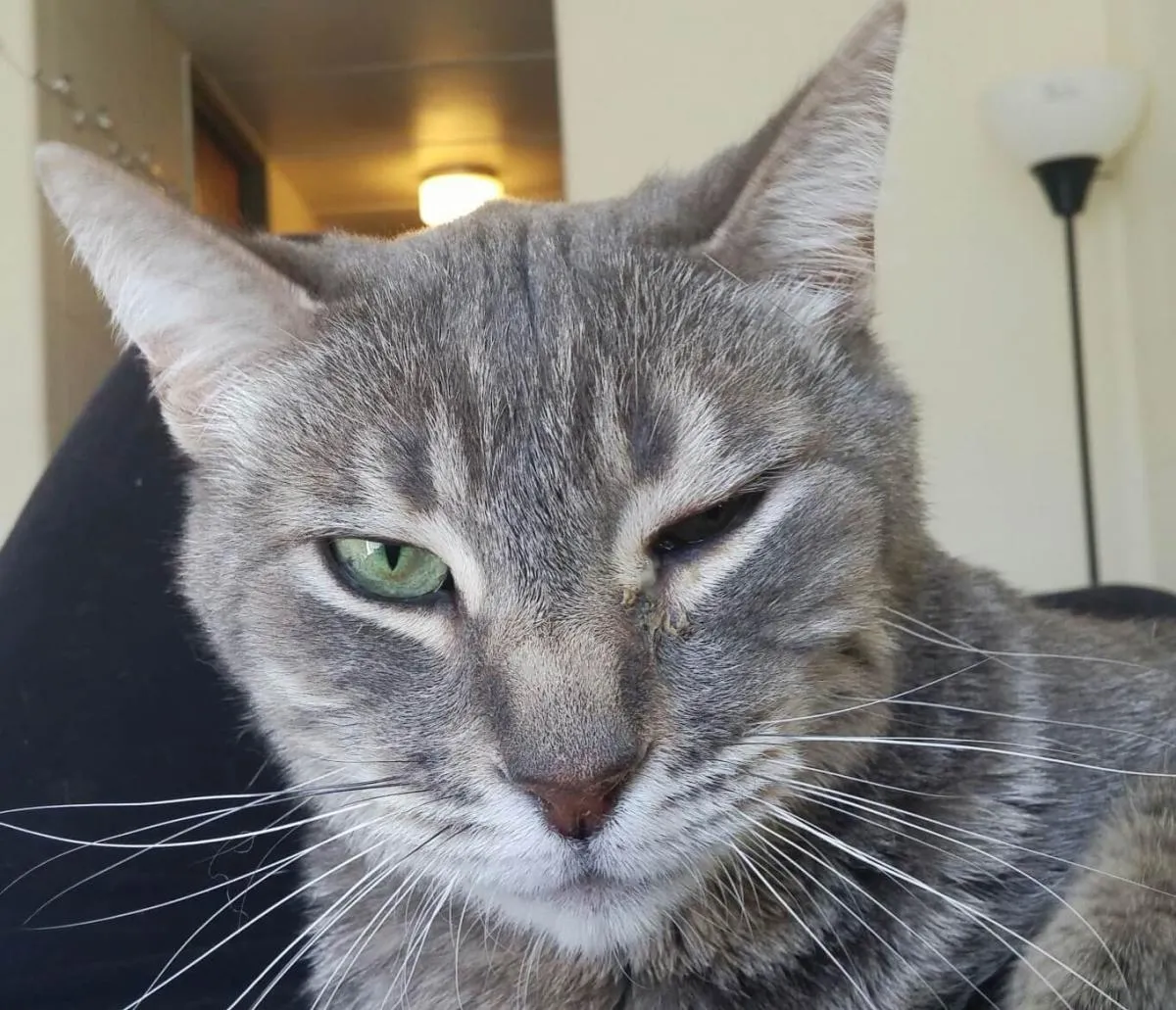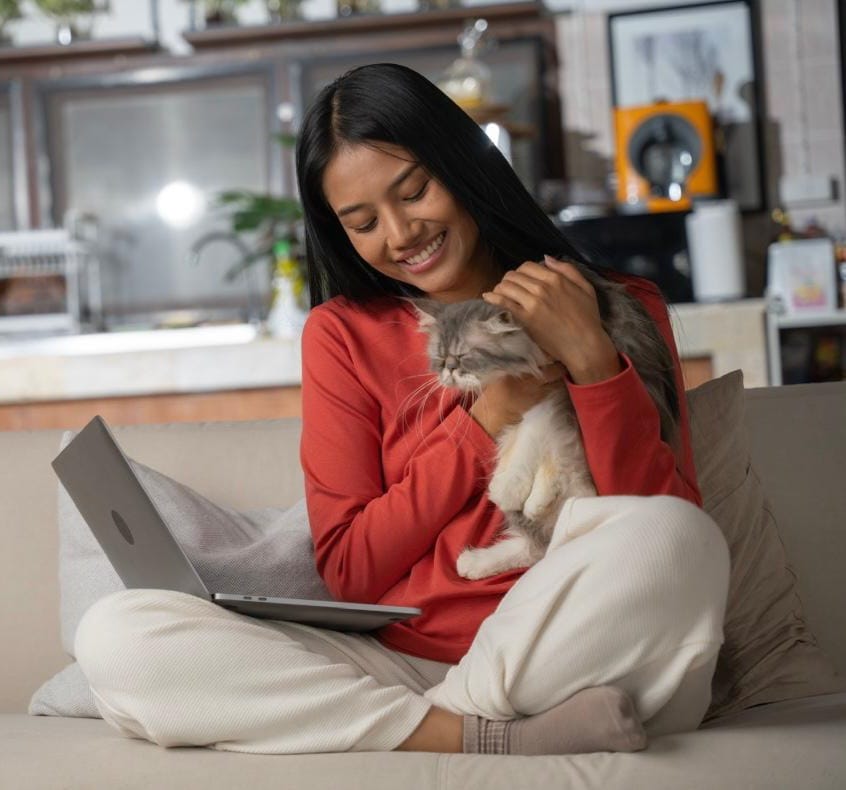Table of Contents
Table of Contents
Disclaimer: This article is for educational purposes only and should not replace professional veterinary advice. If your cat is squinting or showing signs of discomfort, consult a licensed veterinarian immediately.
Cats often squint briefly when they're exposed to bright light, dust, or other mild irritants. That's normal and usually nothing to worry about. But if your cat keeps squinting one eye, or seems reluctant to fully open it, this can signal something more serious such as an eye infection, injury, or an underlying health issue.
Recognizing the difference between normal cat squinting and abnormal squinting is important for every pet parent. Persistent squinting can cause discomfort, affect your cat’s vision, and may even point to conditions that need urgent veterinary care.
In this guide, we'll cover:
- What abnormal squinting in cats looks like
- The most common reasons your cat may be squinting one eye
- How veterinarians diagnose and treat eye conditions
- When to seek immediate vet care
If you've ever asked yourself, "Why is my cat squinting one eye?", keep reading this article will help you understand the causes and next steps to keep your cat healthy and comfortable.
Why Does My Cat Keep Squinting?
Occasional squinting is usually nothing to worry about, your cat might simply be reacting to bright light, dust, or a passing shadow. But if your cat keeps squinting, especially in one eye, it often points to an underlying issue.
Vets call this abnormal squinting or blepharospasm. It means the eyelids are closing repeatedly and involuntarily, either in one eye or both. Unlike normal blinking, blepharospasm doesn't stop after a moment your cat seems unable to fully open the affected eye, which is a clear sign that something is irritating or hurting it.
Some of the most common triggers for persistent squinting include:
- Bright light or glare: sensitivity can make your cat narrow their eyes.
- A foreign object: like dust, a grass seed, or even a tiny scratch on the eye surface.
- Airborne irritants: smoke, chemicals, or strong odors.
- Inflammation or injury: eye diseases, ulcers, or trauma can all cause discomfort.
Normal vs. Abnormal Squinting in Cats
A quick squint when the sun hits their face? Normal. A playful half-blink when your cat is looking at you? Also normal. But if your cat keeps squinting one eye, blinks excessively, or holds an eye closed for long periods, that’s abnormal and usually painful for them.
Abnormal squinting is often accompanied by other signs, such as:
- Redness in or around the eye
- Watery discharge or crust buildup
- Pawing at the face or rubbing against furniture
- Avoiding bright light or hiding more often
If you notice these symptoms alongside squinting, it's best to have your cat checked by a vet.
Causes of Abnormal Squinting in Cats
When a cat keeps squinting, blinking, or holding one eye closed, it usually means something is bothering the eye. This reaction, called blepharospasm, is the body's way of protecting the eye from pain or irritation. The most common causes include infections, injuries, irritants, or other eye conditions.
1. Eye Infections
Eye infections are one of the leading reasons cats squint abnormally. They cause inflammation, discomfort, and sometimes discharge. While any part of the eye can become infected, the conjunctiva (the thin tissue lining the eyelid and covering the eye) is most commonly affected. This condition is known as conjunctivitis.
Cats can develop conjunctivitis and other eye infections from:
- Feline herpesvirus (FHV-1)
- Chlamydia infection
- Feline calicivirus
- Fungal infections like cryptococcosis
- Other organisms such as mycoplasma or roundworms
Because eye infections often appear alongside upper respiratory infections, your cat might also show symptoms such as:
- Sneezing or coughing
- Watery or mucus like discharge from the eyes or nose
- Loss of appetite
- Low energy or lethargy
- Occasional vomiting or diarrhea
2. Eye Injuries or Irritants
Even a small injury can make a cat squint one eye persistently. Common eye injuries include:
- Scratches or bites from other cats
- Corneal ulcers, which are painful wounds on the surface of the eye
- Foreign material stuck in the eye, such as dust, grass seeds, or small debris
Environmental irritants can also trigger squinting. Things like smoke, cleaning chemicals, air pollution, or even bright sunlight reflecting off surfaces can make a cat's eyes red and uncomfortable. Along with squinting, you may notice:
- Red or inflamed eyes
- Excessive tearing or discharge
- Pawing or rubbing at the eyes
3. Other Eye Conditions
Sometimes squinting is linked to broader eye conditions rather than infections or injuries. These can include:
- Dry eye, where the eyes don’t produce enough tears
- Eyelid or eyelash disorders that rub against the eye surface
- Eye tumors or cancer
- Allergic conjunctivitis caused by pollen or other allergens
How Vets Diagnose and Treat Eye Issues in Cats
Because squinting can have many different causes, vets start with a complete physical exam and a careful look at your cat's eyes. Sometimes, the issue is obvious with just a light and magnifying lens in a darkened room. Other times, vets need to run tests to rule out or confirm specific conditions.
Common diagnostic tests include:
- Fluorescein eye stain highlights scratches, ulcers, or damage to the cornea
- Schirmer tear test measures tear production to check for dry eye
- Tonometry tests eye pressure to detect glaucoma or other issues
- Blood tests and infectious disease panels check for viruses or systemic conditions
- Bacterial or fungal cultures identify infections
- Cytology or biopsy examine cells or tissue samples for cancer or unusual growths
- Diagnostic imaging X-rays or ultrasound if deeper eye structures are affected
Getting the right diagnosis is essential since many eye conditions look alike but need different treatments.
Treatment Options for Cats with Eye Issues
Not every eye condition requires aggressive treatment some mild cases improve with time or supportive care. However, when medical intervention is needed, your vet may recommend:
- Prescription eye drops or ointments with antibiotics, antifungals, or anti inflammatories
- Oral medications, such as antibiotics, antivirals, pain relievers, or anti inflammatories
- Allergy treatment if allergies are contributing to eye irritation
- Foreign body removal to clear out debris or irritants
- Wound care or surgical repair for more serious injuries or ulcers
- Specialized surgery if tumors, eyelid abnormalities, or other structural issues are present
Supportive Care at Home
For cats dealing with infections or discomfort, your vet may also suggest simple care measures you can do at home to help your cat heal faster:
- Apply a warm compress to soothe irritated eyes
- Gently clean away discharge with a soft cloth
- Keep the environment warm and humid to ease respiratory symptoms
- Offer soft, moist food to encourage eating if your cat feels unwell
When to seek veterinary care for your cat's eyes
If you notice your cat squinting more than usual, don’t brush it off. Even if your cat seems otherwise healthy, eye symptoms should always be taken seriously. Addressing them early can help:
- Prevent infections or irritation from getting worse
- Relieve your cat's discomfort
- Catch underlying conditions before they progress
- Protect your cat's vision and avoid long term damage
Some situations are true emergencies like if your cat's eye is injured, something is stuck in it, or the eye looks out of place. In these cases, get veterinary care right away.
When in doubt, it's best to have a vet take a look. With Telavets, you can book a virtual appointment and get guidance from a licensed veterinarian without leaving home. This way, you'll know whether simple care at home is enough or if your cat needs an in person exam.
FAQ – Why is my cat squinting?
Why does my cat keep squinting at me?
It’s normal if your cat squints briefly in bright light or when something moves close to their face. But if your cat keeps squinting or struggles to fully open one or both eyes, it could mean there's an issue like irritation, an injury, an infection, or another eye condition.
Does squinting mean my cat is in pain?
Yes, squinting can be a sign that your cat's eyes are uncomfortable or painful. Other red flags include pawing at the eyes, meowing more than usual, refusing food, hiding away, or acting unusually cranky.
What should I do if my cat keeps closing one eye?
If your cat can't keep an eye open or keeps blinking/squinting, it's best to get them checked by a vet. Early treatment not only eases their discomfort but also helps identify the cause and prevents long-term damage to their vision.
With Telavets, you can book a virtual vet consultation and get advice quickly so you'll know whether your cat needs at home care or an in person exam.
Related Articles
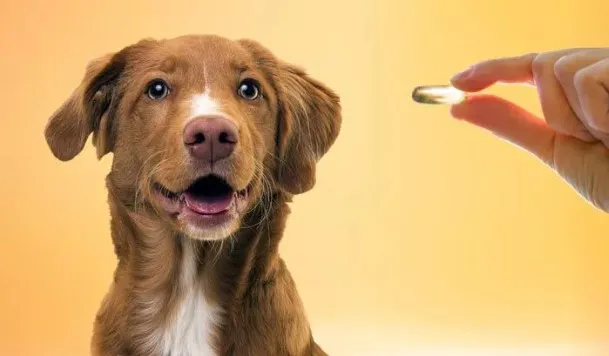
NexGard Plus for Dogs: Side Effects, Benefits, Dosage & Expert Reviews
Learn everything about NexGard Plus for dogs, including benefits, side effects, dosage, and real veterinary reviews. Ensure your dog stays protected from fleas, ticks, and parasites.
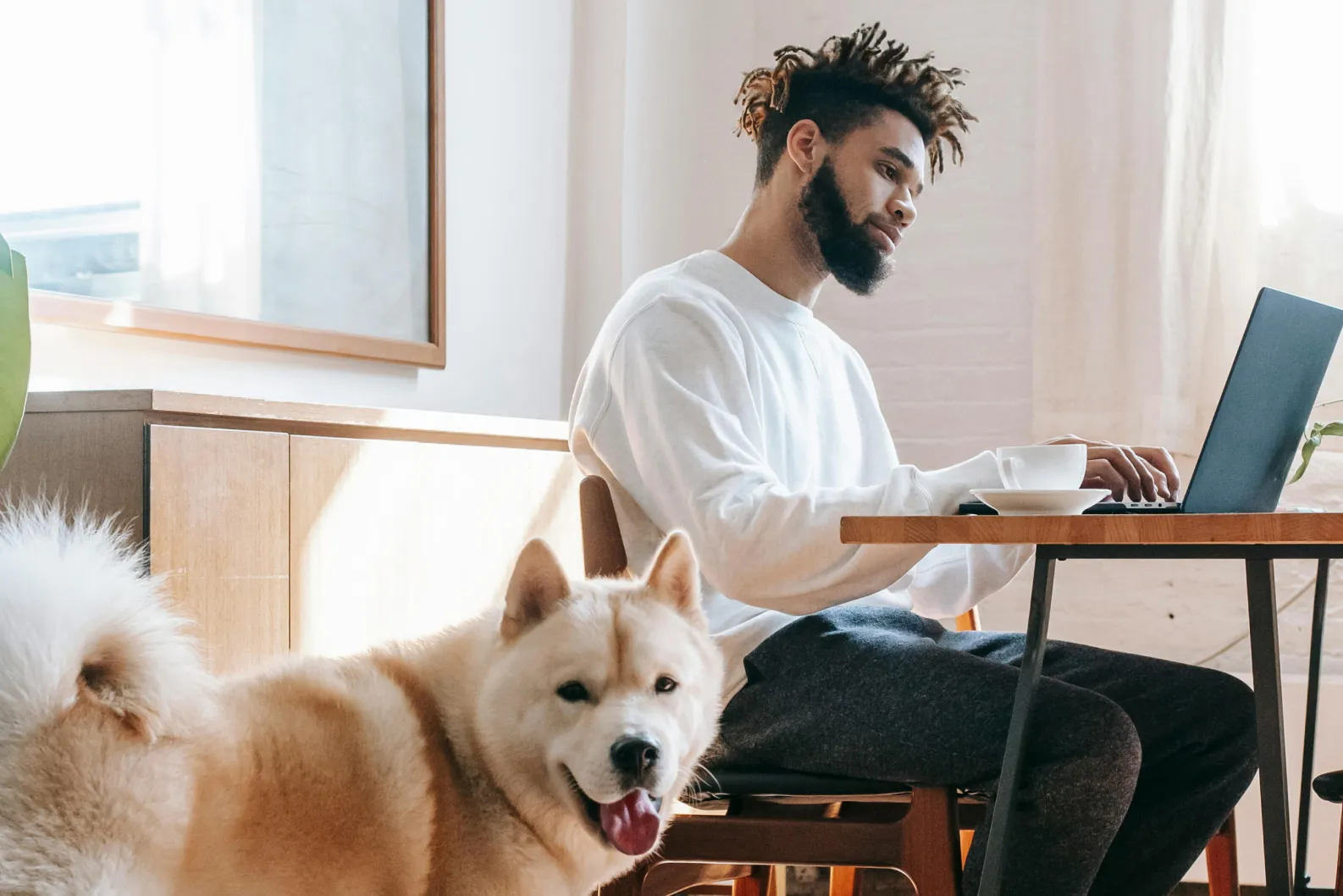
Pet Benefits Programs for Employees: How Companies Are Supporting Pet Parents with Virtual Vet Care
Discover how pet benefits programs help companies attract and retain employees. Learn how TelaVets offers virtual vet care as a modern employee pet benefit.
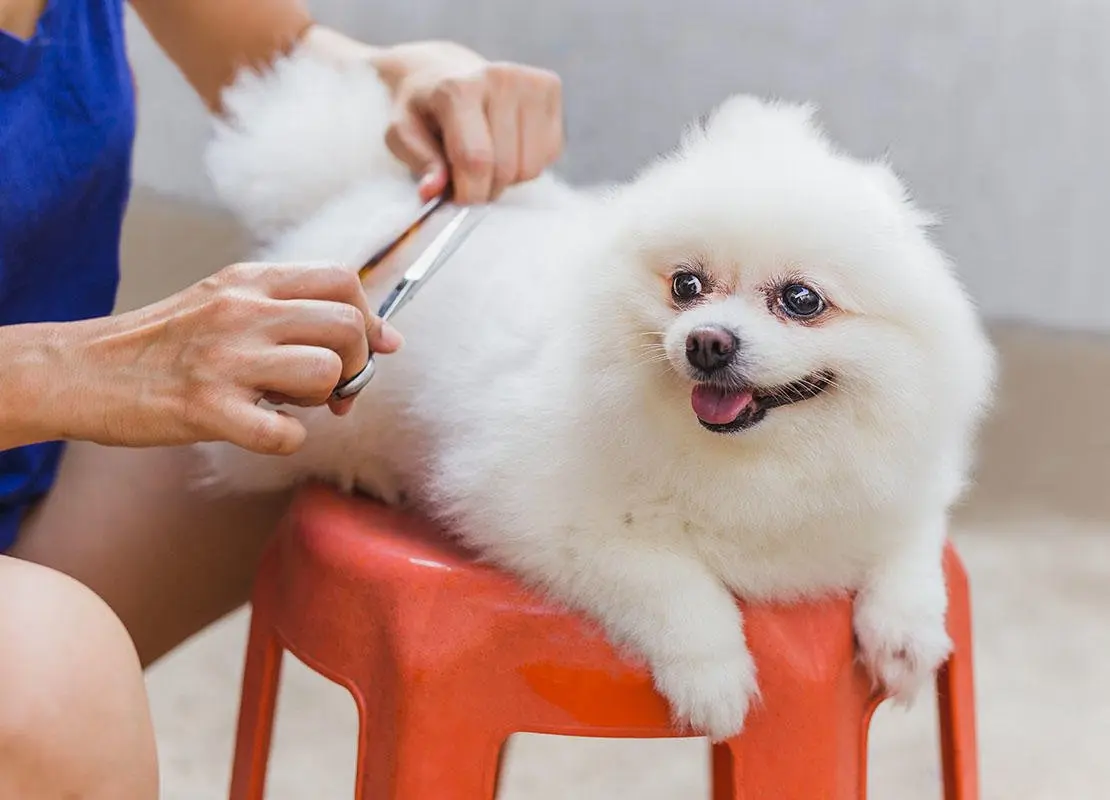
Dog Grooming Tips for Beginners: How to Groom Your Dog at Home | TelaVets
Discover beginner-friendly dog grooming tips to keep your dog healthy, clean, and happy. Learn how to groom at home, make it fun, and know when to seek professional advice.
